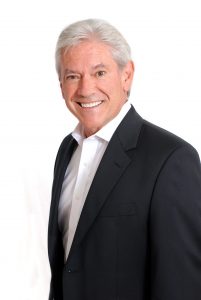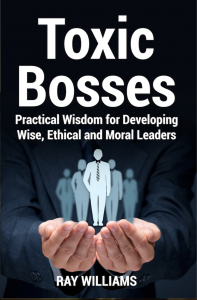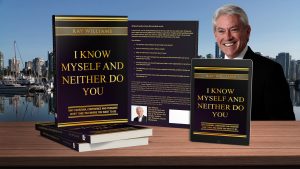By Ray Williams
February 28, 2021

“Wisdom is full of paradoxes,” says Igor Grossman from the University of Waterloo: “It is one of the oldest topics in the intellectual history of humanity, and yet talking about wisdom can feel odd and disingenuous. People seem to have intuitions about who is and isn’t wise, but if you press them to define wisdom, they will hesitate. Wisdom, with its mystical qualities, sits on a pedestal, inspiring awe and trepidation, a bit of hushed reverence thrown in. It’s easy to distil wisdom’s archetypes in history (druids, Sufi sages) or popular culture (Star Wars’ Yoda, or Harry Potter’s Dumbledore), but harder to apply to the person on the street.”
Some people claim that the interest in wisdom emerged with the advent of particular Far Eastern philosophical traditions such as Buddhism, Hinduism, Taoism, each emphasizing lives of sages and ways to make sense of one’s existence in the ever-changing world. But, neither the concept of sages nor the process of making sense of the world are specific to a particular school of thought – most religions and ideologies have their own sages and saints, and attempt to provide a certain worldview. We know that he concept of wisdom is incredibly ancient, and not unique to any specific culture or way of being.
For instance, more than 5,000 years ago in ancient Mesopotamia, the Moon-god Nanna, the Lord of Wisdom, symbolized the sum of all other Sumerian deities’ powers, including foresight, justice, fertility and love. Wisdom was a prominent topic in ancient Egyptian and Jewish texts, and featured as a requirement in advising professions such as divinity, sorcery or at the pharaoh’s court. In his Maxims, the ancient Egyptian vizier Ptahhotep described guidelines for sustaining social order, achieving political success and cultivating self-control – in other words, the skills of wisdom. In the Old Testament’s Book of Ecclesiastes, where life is beyond comprehension, wisdom recognises the limits of knowledge.
If we had a time machine and could travel to a point in history roughly midway between Ancient Mesopotamia and now, we would find ourselves in Ancient Greece during the time of Pythagoras, Plato and Aristotle. Pythagoras advanced mathematics and music theory, and is one possible source for the term ‘philosophy’ – the love of wisdom (philo–sophia). For Pythagoras, numbers were an underlying feature of reality, mysticism, the harmonic balance of opposites, and wisdom itself. Building on some of Pythagoras’ ideas, Plato and his best student Aristotle considered wisdom an essential human virtue – ‘a habit of mind in harmony with reason and the order of nature’, as the Roman philosopher and statesman Cicero would write a few centuries later. For Aristotle, as for Near Eastern thinkers millennia before him, wisdom was a key element on the path to achieving a good life, a path that required balance and moderation between extremes.
In Nicomachean Ethics, Aristotle explains that all great leaders possess one specific trait: practical wisdom. Wisdom allows leaders to accurately size up a situation and make the best possible decisions for both themselves and others.

As an ideological backbone to medieval Christian philosophy, Platonic and Aristotelian ideas about wisdom continued to dominate the scholarly debates for centuries. Theologians such as Augustine of Hippo and later Thomas Aquinas interpreted the Greeks’ writings in terms of Christian ideals when debating the foundations of reason, understanding or the nature of ethics.
Despite all this, the fascination with wisdom started to decline during the Renaissance and the Age of Enlightenment. With the advance of modernity, the discourse shifted from the good life toward the pursuit of rational self-interest and usefulness – ideas that focused on immediate benefits and aimed to reduce complex ethical dilemmas to a single common denominator, rather than balance and moderation.
The topic of wisdom didn’t re-emerge in mainstream philosophical circles until the 1970s, along with post-Second World War stability and the New Age zeitgeist. A new focus on ‘optimal’ happiness and psychological fulfilment led to the rediscovery both of Aristotelian ideas about virtues and of non-Western perspectives on flourishing. In philosophy, Alasdair MacIntyre’s After Virtue (1981) led to renewed interest in the topic of wisdom from an Aristotelian perspective.
Behavioral scientists were fairly late to the game, with the first humble attempt to empirically study wisdom surfacing in the 1970s in a dissertation by Vivian Clayton. Today a geriatric neuropsychologist in California, Clayton aimed to explore the characteristics a group of 83 lay Americans associated with a wise person, and arrived at three commonly held elements: cognition, reflection and compassion.
Like Aristotle millennia before, the psychologists and social scientists who came after Clayton agreed that wisdom was oriented toward the pursuit of a good life. Yet, what does such pursuit entail? The meaning of the good life and ways to achieve it vary by philosophical school. Because of the long and diverse intellectual history of wisdom, scientists could pick and choose definitions.
Whereas some scientists followed Platonic and Aristotelian ideas, others borrowed from Buddhism, Hinduism or Taoism – promoting worldviews that relate to the environment in quite different if not opposite ways. Some researchers sidestepped philosophy altogether, reserving the label ‘wisdom’ for the mature level of adult development. And some embarked on a Quixote-like quest to find wisdom in old age without a clear definition of either wisdom or ‘old age’. After all, the meaning of ‘old’ has changed dramatically in the past few centuries, with lengthening average human lifespans.
A study conducted by Igor Grossmann at the University of Waterloo and Ethan Kross of the University of Michigan published in Psychological Science sought to answer a question about wisdom that has plagued philosophers ranging from Aristotle to Confucius: Is wisdom something we’re born with, or is it a quality that we can cultivate?
Grossmann has conducted several previous studies exploring the underlying qualities associated with wisdom. According to Grossmann and his colleagues, wise reasoning is associated with “the ability to be observant, to see things within a larger context, flexibility, consideration of various opinions in a situation, self-reflection, and thoughtfulness.”
Grossmann and found evidence that we are much wiser when it comes to making decisions about others’ social problems than our own—a habit they referred to as Solomon’s Paradox. In a series of experiments, participants were asked to imagine a situation where either a romantic partner cheated on them or a scenario where a friend’s romantic partner cheated.
After considering this conundrum, participants answered a series of questions aimed at measuring aspects of wise reasoning—such as recognizing the limits of their own knowledge, considering others’ perspectives, and searching for a compromise.
In support of Solomon’s Paradox, those who were asked to imagine someone else’s predicament scored higher on measures of wise reasoning compared to those who imagined their own partner cheating. Further experiments showed that adopting a more psychologically distant third-person perspective helps people make wiser decisions when responding to common conflicts.
“To date, research on wisdom-related thought has mainly concerned hypothetical in-lab situations or has employed single-shot trait self-assessments of personal attributes,” Grossmann and colleagues write in Social Psychological and Personality Science. “Little has been known about the nature of wisdom in everyday life.”
In this new study, Grossmann and colleagues conducted a daily diary study of wise reasoning to evaluate how people use wisdom in their everyday lives, such as handling conflicts with colleagues at work.
The researchers recruited 152 adults from communities around Berlin, Germany for the study. After completing a series of demographic questionnaires in the lab, participants were given instructions on keeping a daily diary. Every morning for 9 days, participants received an email link to their diary along with a guided prompt asking them to reconstruct specific details of a negative experience from the previous day. Next, a standardized set of questions guided participants to reflect on their feelings and reactions to the incident.
The results showed that wise reasoning varies between individuals, but also varies dramatically across different situations. The implication is that wisdom is not necessarily a fixed trait in any individual, but fluctuates depending on specific situations.
When people reported spikes of higher-than-average wise reasoning, they were more likely to report more intense positive emotions and less intense negative emotions. They were also more likely to show greater emotional complexity, a more adaptive pattern of emotion regulation (more reappraisal and less suppression), and a greater tendency to forgive. When people used wise reasoning during conflicts, they ended up having more positive, adaptive emotional reactions to negative experiences.
One implication of this, the researchers note, is that wisdom may be more common than we think. That is, the office intern may make wiser decisions than a senior supervisor depending on the circumstances.
“Results from the present article indicate that some of the central characteristics of wisdom discussed by psychological scientists, including intellectual humility, self-transcendent viewpoint, and recognition of the bigger issue at hand, have a dynamic component, understanding of which would be essential for a fuller picture on wisdom in everyday life,” the researchers conclude.
From the beginning of recorded time, humanity has been fascinated by the figure of the wise person, wending their path through the tribulations of life, and informing those willing to learn. What sets them apart? Maybe that’s the wrong question. In a review in European Psychologist, Grossman argues that understanding wisdom involves taking the wise off their pedestal, and seeing wisdom as a set of processes that we can all tap into, with the right attitude, and in the right context.
Wisdom might seem to be a difficult concept for psychologists to study, but Grossman says there is some agreement now that it comprises:
- Intellectual humility
- Appreciating broader perspectives
- Knowing that social relations can change
- A willingness to compromise or integrate different opinions together
Seen this way, wisdom is distinct from things like creativity and intelligence, while being associated with related phenomena like emotion regulation, cooperative intentions, and political even-handedness (e.g. not condemning an opponent’s change of view as flip-flopping).
Psychologists who research wisdom tend to use questionnaires administered at one point in time to measure it, treating it as a static property. But Grossman argues that this doesn’t fit with the variability with which wisdom manifests. Experiments in the lab that asked participants to work through hypothetical situations, have found that people’s wisdom on one topic (say, the “Meaning of Life”) only gave a limited indication of their wisdom in another, like adjudicating a family issue. And diary studies where participants reflect on the most difficult issue they faced each day show that wise thinking can fluctuate wildly.
In Grossman’s view, this suggests that although wisdom has some stability, the context is king. And changing the context of thinking can encourage more wise outcomes. For instance, researchers observe wiser thinking when participants are asked to consider a problem as if it occurred a year ago, rather than now, or if it’s occurring to a third party, rather than themselves. These distancing techniques help us take a less egocentric approach, trapped in the urgent “here, now, me” which pushes us to look for certainty and closure, often prematurely.
In addition, explaining an issue you care deeply about is done in a more wise, balanced manner when you imagine that the recipient is a 12-year old, casting you as a teacher. It seems that again, seeing yourself as a teacher of someone in need of insight (rather than facing a peer in need of convincing) leads us to be less egocentric and more focused on the other, allowing us to disinvest in static certainties.
If different contexts can encourage wisdom, does this mean that wisdom can be taught? There’s good reason to be skeptical: in a classic study, John Darley and Daniel Batson found that seminary students who had been preparing a talk about the Good Samaritan were no more likely to stop and help someone in need, suggesting that learning about a wise approach to living doesn’t mean that we will internalize it. And we know that moral philosophers are no more moral than the rest of us, suggesting that even deep training doesn’t add up to real world practical wisdom.
Proponents of teaching wisdom suggest that this teaching could be framed around exemplars – wise figures from the past. Grossman is in favor of this, but suggests that the road to wisdom comes not from treating these figures as peerless exemplars, but as successes within a social context, and by comparing and contrasting where their wisdom apparently reached its limits and why. This is captured by the Solomon Paradox, named after the great Jewish king who also boasted of his riches and ill-prepared his son to succeed him. Grossman argues that exploring these foibles and failings – and whether, in their historical context, they were as great a failing as we now assume – leads to intellectual humility and a sense of a bigger, more complicated picture.
Putting the social context into wisdom isn’t an entirely new idea. Taoism teaches us to go beyond an individual point of view, and the Socratic method involves gaining wisdom through discussion, rather than solitary rumination. So consider this new paper a reminder of what these traditions have said: that wisdom is a way, a path along which our thinking becomes proportionate, balanced and expansive, and that it’s a journey enriched by company.
Do We Get Wiser with Age?
According to some studies, wisdom increases with age, stays stable, increases, then decreases depending on how you measure it. Some researchers found that wisdom as a whole showed an inverse U-shaped curve, but there were different curves for the three dimensions of wisdom. But who can we turn to for wisdom in the human world? In studies in which participants were asked to nominate individuals that they thought wise, the average age for nominees was about 55 or 60. Nominees in one specific study included such old-timers as Gandhi, Confucius, Socrates, Queen Elizabeth, and the Pope. Clearly, the public believes that with age comes wisdom.
Experience makes us wise, research shows. Men and women of at least 60 years old are better at making decisions which will reward them in the long term. Those in their 20s and 30s, however, are interested only in instant gratification and cannot see the benefits of planning. The findings contradict the stereotype of elderly people losing their mental edge.
Researchers concluded that regardless of how long pensioners take in coming to a decision, it is generally a better one than a choice made in youthful haste.
The team, from the University of Texas and Texas A&M University, asked 28 ‘older’ adults and the same number of younger participants to perform a decision-making task in which they needed to think about immediate rewards.
The young group fared best at choosing the options which gave short-term benefits.A second experiment, however, showed up a significant difference.
About 50 men and women aged 67-82 and a group of 50 aged 20-36 were asked to store oxygen on a virtual mission to Mars. They could choose between an option which increased rewards in future trials, and one which decreased future rewards but offered a larger immediate one.
In each case, older participants outperformed the rival group by figuring out which option led to the most long-term rewards.
University of Texas professor of psychology Todd Maddox added: ‘Broadly, these results suggest that younger adults may behave more impulsively, favoring immediate gains, while older adults are better at considering the long-term ramifications of their actions.
‘We found that younger adults performed equivalently in the experiment, but older adults were more adept at adjusting their strategy to fit the goals of the task.’
The researchers are now examining why this difference exists but believe it could demonstrate a change in how we use our brains as we age.They suggest it could be to do with the declining use of the ventral striatum, a region of the brain associated with habit formation and immediate rewards. As this deteriorates with age, we compensate by using the prefrontal cortex, which controls rational and deliberate thoughts.
The Psychology of Wisdom
Psychologist Judith Glück, reflecting the views of Robert Sternberg, has long been arguing that we need to educate our children for more than just intelligence and knowledge—we need to figure out how to foster wisdom. Wisdom, she contends, goes beyond intelligence and knowledge in that it includes aspects of self-reflection, openness, compassion, and morality. In other words, she says, it is what enables people to use their intelligence for the sake of a common good.
Education affects wisdom implying that education may promote wisdom in young years and support its maintenance later in life. These quantitative findings are complemented by two qualitative studies that looked at how wisdom develops as people reflect upon life experiences. They found that a person’s social environment plays an important role in enabling them to gain wisdom from an experience. The role of others in the development of wisdom is, in fact, a highly important and understudied area.
They found that people they studied often felt they had gained wisdom from difficult and fundamental events and that wiser participants showed more growth-oriented forms of self-reflection in thinking about the events.
Although wisdom can arise from difficult experiences, it also helps people to cope with them. In a quantitative study of almost 1,000 older adults, they found that wisdom served as an effective buffer against the negative effects of adverse events on well-being. In other words, wiser individuals showed higher well-being than other people as they were coping with a difficult experience. Together, these studies illustrate that we need to combine qualitative and quantitative methods to understand both the larger effects—or predictors—of wisdom and how exactly wisdom manifests itself—or develops—as people deal with and learn from life.
Taking a cultural perspective on wisdom is important in many ways. One is that the state of our planet today requires us to find ways to cross national and cultural boundaries— to learn how to take all of humanity into account as we make decisions that shape our own and our children’s future. Climate change, global inequality, and the rise of national and religious radicalism can only be countered if nations act in concert and try to find long-term sustainable ways of supporting one another.
Wise Leaders
Wise leaders treat the world around them, nature, and our planet Earth, the same way. That is, wise leaders recognize the intrinsic worth and value of Earth and value it for that worth, not because its resources can be exploited for personal or company gain. That attitude is very different from treating others—employees, for example, as means to the end of making money, or treating natural resources as something that should be exploited simply for material or wealth gains.
The difference means that people and the world around us are treated as wholes that are worthy of being cared for in and of themselves, not just because they are the means to greater wealth or subjects of exploitation, a fundamental ethical tenet. In recognizing the integrity of the world around us and that of other people, wise and ethical leaders treat both people and the planet as having intrinsic worth, and the quality of dignity.
Copyright: Neither this article or a portion thereof may be reproduced in any print or media format without the express permission of the author.
Read my latest books:
Toxic Bosses: Practical Wisdom for Developing Wise, Moral and Ethical Leaders,

and,


